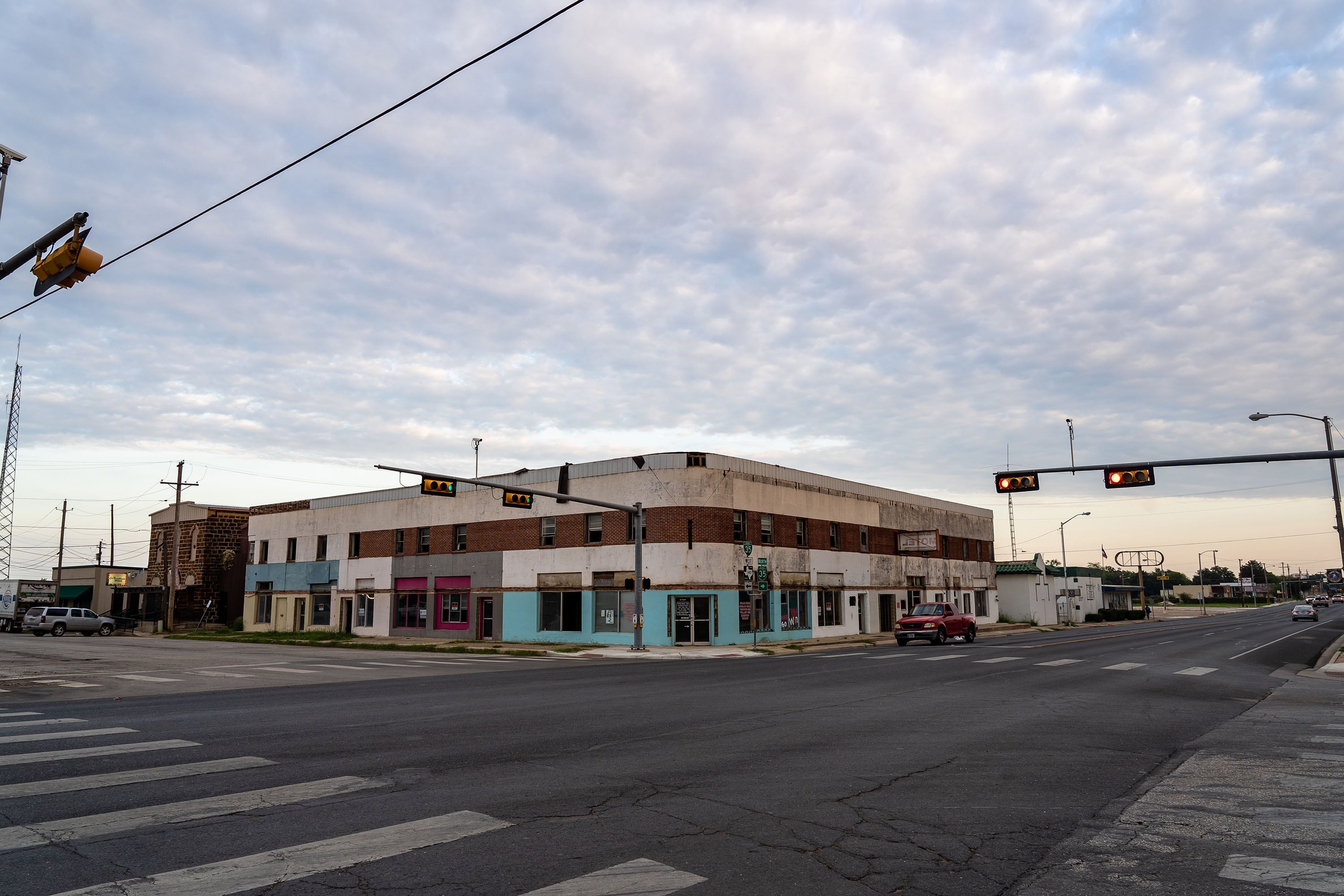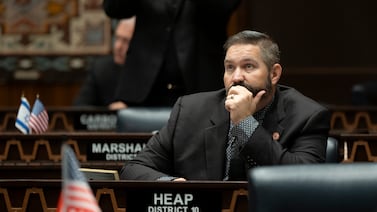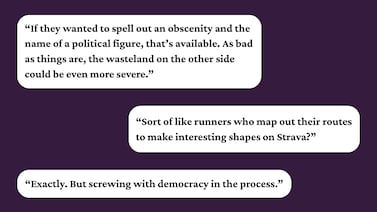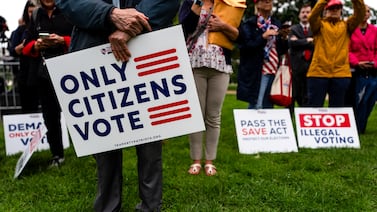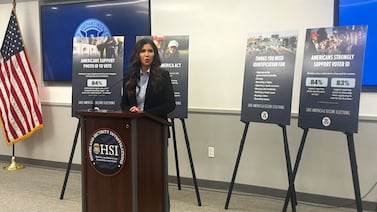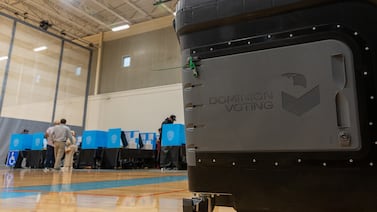This story was first published by The Texas Tribune, a nonprofit, nonpartisan media organization that informs Texans — and engages with them — about public policy, politics, government and statewide issues.
Texas Attorney General Ken Paxton announced charges Wednesday against six people — including five public officials — in what his office described as a “vote harvesting scheme” in Frio County, a part of his yearslong election integrity investigation.
The six people indicted were Frio County Judge Rochelle Camacho; a former county election administrator; two Pearsall City Council members; one Pearsall school board member; and one other person. Five of the six were arrested on May 2; Camacho will be processed later, according to a release from Paxton’s office.
“The people of Texas deserve fair and honest elections, not backroom deals and political insiders rigging the system,” Paxton wrote in a statement. “Elected officials who think they can cheat to stay in power will be held accountable. No one is above the law.”
Additional details on the indictment were not immediately available. Audrey Gossett Louis, the district attorney for the region, said in a statement: “Violating the privacy or voting rights of our elderly or disabled community members will be met with zero tolerance.”
Ballot collection, or “harvesting,” a term used by many in the Republican Party, refers to the process of designating someone else to return a voter’s ballot. It’s allowed under federal law, but some states have restrictions, such as not allowing the person collecting the ballots to be compensated, or not allowing them to collect more than a certain number of ballots, according to the National Conference of State Legislatures.
Paxton brought the charges under Texas’ Senate Bill 1, passed in 2021, which makes it a third-degree felony for a person to knowingly provide or offer “vote harvesting services” — or the collection of ballots — in exchange for compensation, unless the person is employed as a caregiver for a voter who is eligible to vote by mail. Those voters include Texans who are 65 or older on Election Day or who are unable to vote in person due to illness or who will be away from their county throughout the election. Under the law, organizers of voter outreach efforts and volunteers could spend up to 10 years in prison and be fined up to $10,000 for violating the law.
And while a federal court ruling from September challenging the constitutionality of the law halted the state’s ability to investigate those cases, Paxton appealed that decision, which gave the state leeway to continue. The case remains under appeal.
The limits on voter assistance in SB 1 are one of several pieces of the law. Some expand access — such as a provision that increases early voting hours in smaller, mostly Republican counties. But mostly, the law restricts how and when voters cast ballots. It specifically targets voting initiatives used by diverse, predominantly Democratic Harris County, the state’s most populous, by banning overnight early voting hours and drive-thru voting, which were popular among voters of color in 2020.
The Texas Tribune attempted to contact several of the defendants with available contact information Wednesday, but none responded.
Former Texas Democratic Party Chair Gilberto Hinojosa described past investigations conducted under the law as politically motivated, and designed to intimidate voters. He said Republicans investigate alleged election fraud only in Latino and Democratic strongholds like the Rio Grande Valley.
Frio County has a population of about 18,000 and is southwest of San Antonio.

